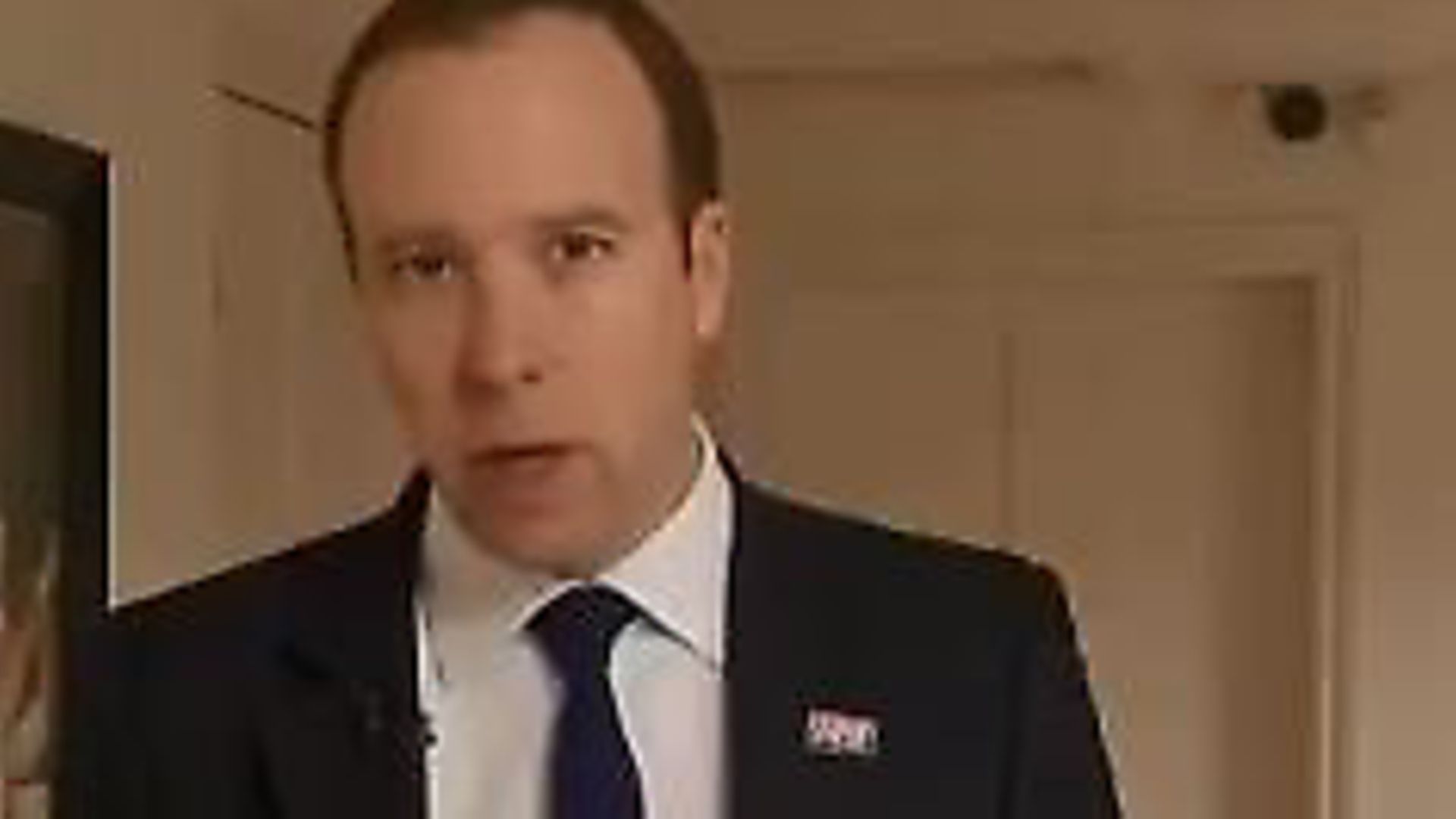
With a week of crucial votes on the horizon, Health Secretary Matt Hancock has refused to rule out a no-deal Brexit despite stark warnings that medics may have to ‘prioritise’ between cancer patients.
"I'm not going to talk about how I'm going to vote in them."
— Ridge on Sunday (@RidgeOnSunday) March 10, 2019
Senior cabinet minister @MattHancock refuses to answer how he would vote on ruling out no-deal or a #Brexit delay.
Follow live reactions to #Ridge here: https://t.co/n5ZnHtlhyq pic.twitter.com/UI8CioCUj0
Despite a recent report by the Royal College of Radiologists (RCR), he called concerns about delayed treatment ‘wrong’ in an interview with Sky’s Sophy Ridge today.
The no-deal vote is likely to take place if Theresa May’s deal is not voted through on Tuesday.
Mr Hancock plans to vote in favour of the deal, but it is broadly tipped to be rejected once again.
Should that happen, he was asked if he would act to prevent a no-deal scenario on Sophy Ridge’s politics show today.
Mr Hancock said: ‘Well I don’t want those votes to happen and I’m not going to talk about how I’m going to vote in them ahead of time,’ arguing that it could affect ongoing negotiations.
This is despite concerns from the RCR that hospitals will have to begin prioritising between cancer patients in the event of no deal, and that there are likely to be delays in cancer tests.
‘In the weeks leading up to Brexit you should consider how to prioritise requests based on clinical need, should supplies be compromised,’ said an RCR advice paper published on March 5.
The college said that ‘clearly there are problems’ with stockpiling some of the more short-lived medicines used in clinical trials, such as isotopes, and that some companies anticipate delay to their deliveries.
Asked by Sophy Ridge about concerns stemming from this, he said: ‘I heard those remarks and they’re wrong.
‘We have plans in place to ensure that we can get all of the drugs into the country in whatever the Brexit scenario – that includes the very short shelf life isotopes that are needed for treating cancer.
‘And so there are plans in place to make sure that can happen.
‘In a way the NHS is designed for dealing with problems – with individual crises with individual people’s lives, and more broadly we prepare for all sorts of eventualities in the NHs and I would say that the NHS has really risen to the challenge of concerns about a no-deal Brexit.
‘In the event that there were a very serious blockages at the border – there’s 12,300 medicines that we use in England at anyone time, and we’ve now got a plan that those medicines can come through even if there’s blockages at the border.’
Warning: Illegal string offset 'link_id' in /mnt/storage/stage/www/wp-includes/bookmark.php on line 357
Notice: Trying to get property 'link_id' of non-object in /mnt/storage/stage/www/wp-includes/bookmark.php on line 37






